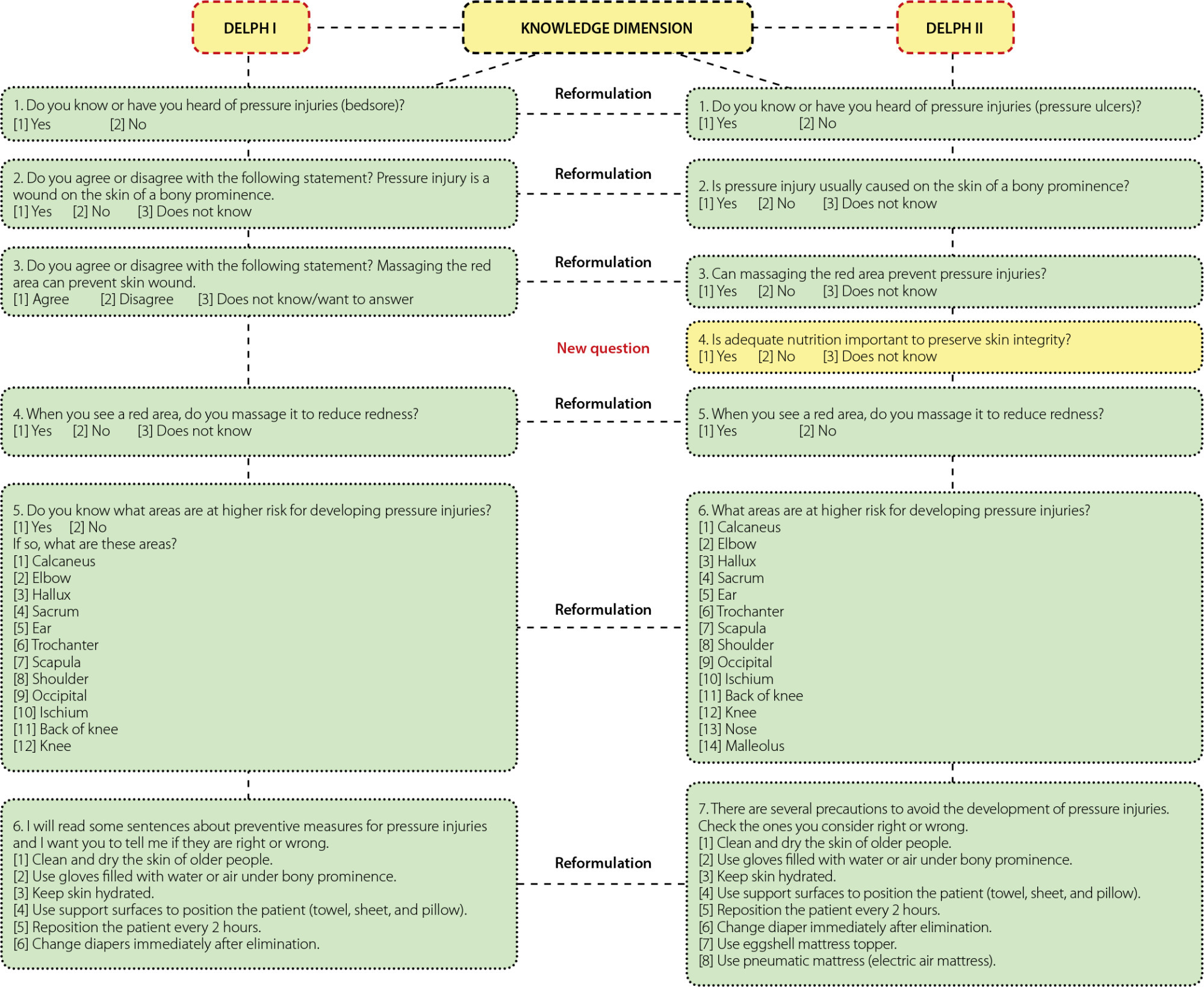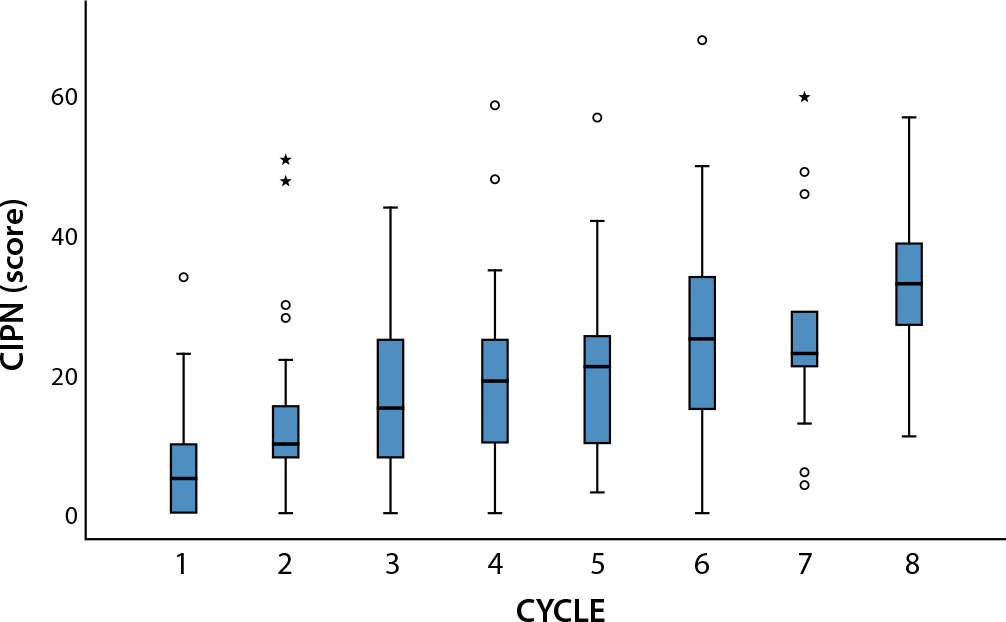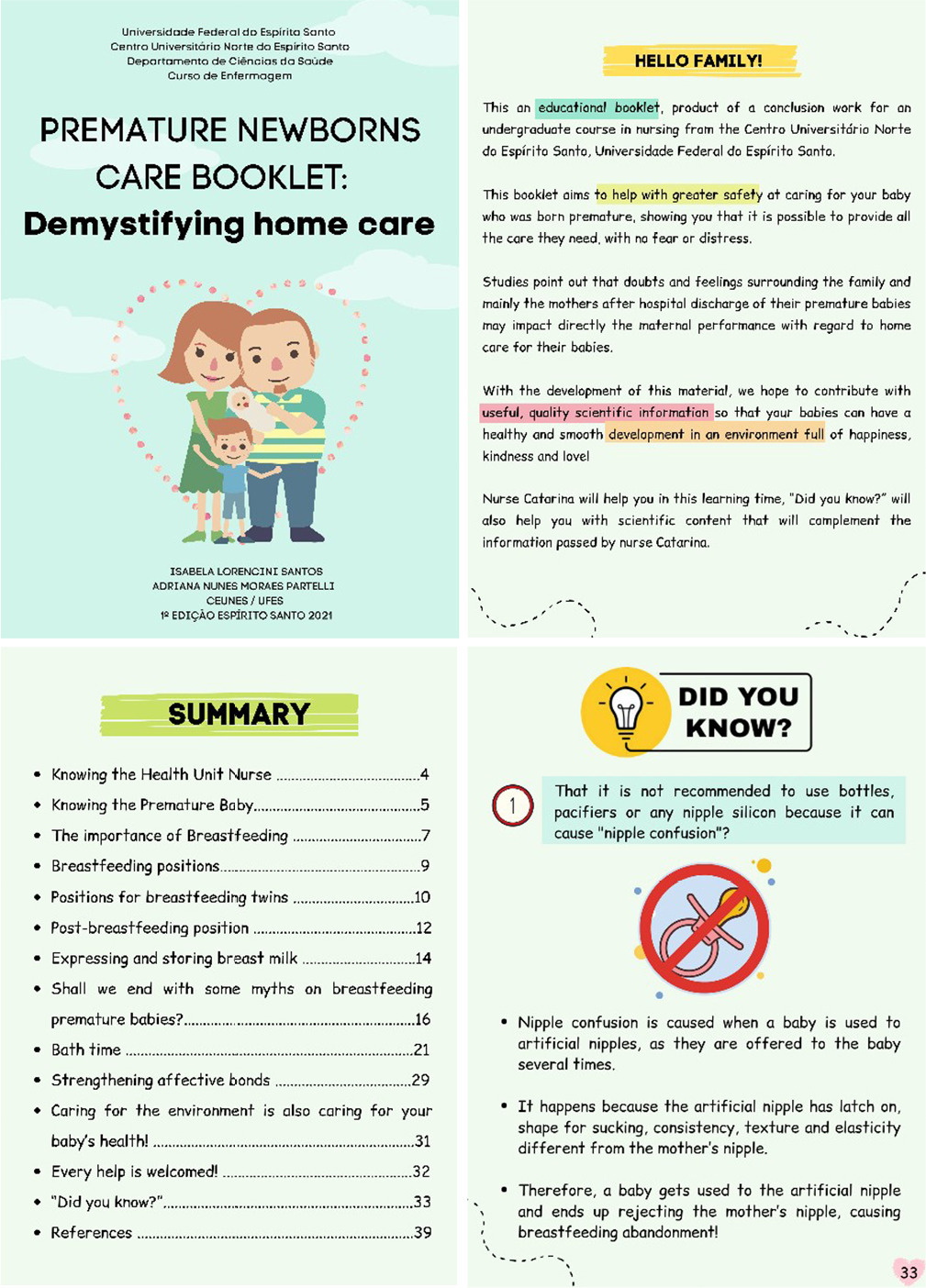-
ORIGINAL ARTICLE02-03-2023
Quality of life and satisfaction of students with auriculotherapy in the covid-19 pandemic: a quasi-experimental study
Revista Brasileira de Enfermagem. 2023;76:e20220522
Abstract
ORIGINAL ARTICLEQuality of life and satisfaction of students with auriculotherapy in the covid-19 pandemic: a quasi-experimental study
Revista Brasileira de Enfermagem. 2023;76:e20220522
DOI 10.1590/0034-7167-2022-0522
Views0See moreABSTRACT
Objectives:
to evaluate the quality of life before and after the application of auriculotherapy and the satisfaction of university students with the treatment during the covid-19 pandemic.
Methods:
quasi-experimental study conducted with 44 students in a University Health Center. The intervention consisted of ten sessions of auriculotherapy focusing on emotional changes with quality of life assessment before and after treatment. The study also investigated the satisfaction concerning the intervention.
Results:
predominated among the students: women, from health courses, in use of psychotropic drugs and complaining of emotional changes. There was a statistically significant increase in all domains of quality of life, and students were satisfied with the treatment.
Conclusions:
auriculotherapy improved the quality of life of university students during the covid-19 pandemic, and the level of satisfaction with the treatment was high.
-
ORIGINAL ARTICLE02-03-2023
Factors associated with the safety culture of patients under dialysis in the context of the COVID-19 pandemic
Revista Brasileira de Enfermagem. 2023;76:e20220280
Abstract
ORIGINAL ARTICLEFactors associated with the safety culture of patients under dialysis in the context of the COVID-19 pandemic
Revista Brasileira de Enfermagem. 2023;76:e20220280
DOI 10.1590/0034-7167-2022-0280
Views0See moreABSTRACT
Objectives:
to assess the factors associated with the safety culture of patients under dialysis in the context of the COVID-19 pandemic.
Methods:
a cross-sectional and analytical study, carried out in Minas Gerais, with 134 professionals from three dialysis services. The Hospital Survey on Patient Safety Culture, adapted for Brazil, was used.
Results:
only variable type of management was associated with the highest percentage of positive response in public and private services. Patient safety was rated as good by 55.7% of respondents. In dimension assessment, the public service presented one strength and five weaknesses, the private service did not present weak areas, and the philanthropic service presented a weakness. The priority areas for improvement actions are represented by dimensions “Nonpunitive response to error” and “Staffing”.
Conclusions:
interventions should consider the type of service management, as it is a factor associated with safety culture.
-
ORIGINAL ARTICLE02-03-2023
Remote teaching during the COVID-19 pandemic: repercussions from professors’ perspective
Revista Brasileira de Enfermagem. 2023;76:e20220172
Abstract
ORIGINAL ARTICLERemote teaching during the COVID-19 pandemic: repercussions from professors’ perspective
Revista Brasileira de Enfermagem. 2023;76:e20220172
DOI 10.1590/0034-7167-2022-0172
Views0See moreABSTRACT
Objectives:
to understand the repercussions of teaching work in remote teaching during the COVID-19 pandemic in Higher Education Institutions in northern Santa Catarina.
Methods:
a qualitative participatory action research, based on Paulo Freire’s theoretical-methodological precepts. Seventeen health professors participated in two Virtual Culture Circles held in the first half of 2021.
Results:
six generating themes emerged for discussion, which aroused in participants’ feelings and perspectives regarding the remote teaching process in the pandemic context, with an emphasis on the connectivity theme, which generated dialogue through reports of personal experiences.
Final Considerations:
the pandemic has had repercussions in sectors such as health and education. Professors talked about their experience in creating, recreating and adapting to remote teaching and the challenges facing the teaching-learning process, listing the worsening of mental health and the need to learn new digital technologies.

-
ORIGINAL ARTICLE01-30-2023
Pressure injury prevention in older people: construction and validation of an instrument for caregivers
Revista Brasileira de Enfermagem. 2023;76(1):e20210930
Abstract
ORIGINAL ARTICLEPressure injury prevention in older people: construction and validation of an instrument for caregivers
Revista Brasileira de Enfermagem. 2023;76(1):e20210930
DOI 10.1590/0034-7167-2021-0930
Views0See moreABSTRACT
Objectives:
to construct and validate an instrument to assess the knowledge, attitudes, and practices related to pressure injury prevention among caregivers of institutionalized older people.
Methods:
this is a three-stage methodological study that consisted of instrument construction, analysis by experts, and semantic and appearance analysis, with 78 participants, observing the validation process steps for psychometric instruments in the criteria of clarity and relevance.
Results:
in the Delphi I round, the validity index of the general content in the clarity criterion was 0.66, in relevance 0.85, and the Kappa value was >0.76. In Delphi II, clarity was 0.95, relevance 1.00, and the Kappa value was >0.97.
Conclusions:
this is a valid instrument in terms of content and appearance, which allows further analysis of its reliability for the measurement of the constructs for which it is intended. Therefore, it can be considered a tool for care management in pressure injury prevention.

-
ORIGINAL ARTICLE01-30-2023
Accuracy of the nursing diagnosis of ineffective airway clearance in intensive care unit patients
Revista Brasileira de Enfermagem. 2023;76(1):e20220174
Abstract
ORIGINAL ARTICLEAccuracy of the nursing diagnosis of ineffective airway clearance in intensive care unit patients
Revista Brasileira de Enfermagem. 2023;76(1):e20220174
DOI 10.1590/0034-7167-2022-0174
Views0See moreABSTRACT
Objectives:
to analyze the accuracy of the clinical indicators of ineffective airway clearance in adult intensive care unit patients.
Methods:
diagnostic accuracy study, performed in the intensive care unit of a university hospital in northeastern Brazil. The sample consisted of 104 patients hospitalized between June and October 2019.
Results:
the prevalence of ineffective airway clearance was 36.54%. The indicators with high specificity included absence of cough (0.8326), orthopnea (0.6817), adventitious breath sounds (0.8175), and diminished breath sounds (0.8326). The clinical indicators with high sensitivity and specificity were alteration in respiratory rate (0.9999) and alteration in respiratory pattern (0.9999).
Conclusions:
six clinical indicators provided an accurate identification of ineffective airway clearance. The clinical indicators alteration in respiratory rate and alteration in respiratory pattern were the most accurate for critical adult patients. The findings of this study contribute to accurate diagnostic inferences and to prevention of respiratory complications in these patients.
-
ORIGINAL ARTICLE01-30-2023
Adverse dermatoneurological events and impacts on daily activities of patients with gastrointestinal neoplasms undergoing chemotherapy
Revista Brasileira de Enfermagem. 2023;76(1):e20220161
Abstract
ORIGINAL ARTICLEAdverse dermatoneurological events and impacts on daily activities of patients with gastrointestinal neoplasms undergoing chemotherapy
Revista Brasileira de Enfermagem. 2023;76(1):e20220161
DOI 10.1590/0034-7167-2022-0161
Views0See moreABSTRACT
Objective:
to associate the presence and grading of adverse dermatoneurological events (peripheral neuropathy and hand-foot syndrome) and the interference in the activities of daily living of patients with gastrointestinal neoplasms undergoing systemic antineoplastic treatment.
Method:
this is a longitudinal, prospective study, using instruments to assess hand-foot syndrome and peripheral neuropathy.
Results:
there were 36 patients: 66.7% diagnosed with colon cancer and 83.2% on combination therapy. From cycle 5 onwards, all of them had hand-foot syndrome, with a majority of grade 1, unrelated to interference in activities of daily living. Regarding peripheral neuropathy, there was a moderate to strong correlation from cycle 1 of treatment.
Conclusion:
peripheral neuropathy negatively affects activities of daily living. The monitoring of dermatoneurological events by oncology nurses contributes to the clinical practice of nursing and subsidizes the development of advanced practice in the country.

-
ORIGINAL ARTICLE01-30-2023
Educational material production and validity: educational instrument for home care for premature newborns
Revista Brasileira de Enfermagem. 2023;76(1):e20210648
Abstract
ORIGINAL ARTICLEEducational material production and validity: educational instrument for home care for premature newborns
Revista Brasileira de Enfermagem. 2023;76(1):e20210648
DOI 10.1590/0034-7167-2021-0648
Views0See moreABSTRACT
Objective:
to produce and validate a booklet, based on Jean Watson’s Theory, on home care for premature newborns, based on caregivers’ experiences.
Method:
a methodological study, developed in the following stages: diagnosis of knowledge needs about home care; survey of scientific content; educational material production; and validity by judges/experts.
Results:
the literature review resulted in 19 articles. The main themes (breastfeeding, bath care, bond building, infection prevention and support network) were listed for producing the booklet “Booklet for Premature Newborns: Demystifying Home Care”. The booklet content and appearance received the overall Content Validity Index of 0.85, considered suitable within the scientific rigor of validity.
Final considerations:
the booklet produced and validated is an educational material whose main role is to provide knowledge and awaken caregivers’ autonomy in providing home care to newborns.

-
ORIGINAL ARTICLE01-30-2023
Development and validation of an instrument for the evaluation of HIV care in Primary Health Care
Revista Brasileira de Enfermagem. 2023;76(1):e20220247
Abstract
ORIGINAL ARTICLEDevelopment and validation of an instrument for the evaluation of HIV care in Primary Health Care
Revista Brasileira de Enfermagem. 2023;76(1):e20220247
DOI 10.1590/0034-7167-2022-0247
Views0See moreABSTRACT
Objective:
To develop and validate an instrument to evaluate the decentralization process of care for People Living with HIV in Primary Health Care.
Method:
Methodological study, developed in four stages: elaboration of the logical model based on the triad Structure-Process-Outcomes; development of the instrument; content validation by expert judges and technical reviewers; and semantic validation. Online questionnaires were used, and the Kappa index was used for analysis.
Results:
The instrument with 68 items and 8 factors was submitted to validation by expert judges who recommended the exclusion of 3 items and the alteration of 2 factors. In the validation by technical reviewers, 2 items were excluded and 6 factors were highlighted; the agreement index was ≥0.75. In the semantic validation, 87.3% of the judges answered “totally agree” for the items presented.
Conclusion:
The instrument is validated for its content, has 63 items and has the potential to assess the care provided for people living with HIV in Primary Health Care.

-
REVIEW09-18-2020
Allocation of resources for health care in COVID-19 pandemic times: integrative review
Revista Brasileira de Enfermagem. 2020;73:e20200244
Abstract
REVIEWAllocation of resources for health care in COVID-19 pandemic times: integrative review
Revista Brasileira de Enfermagem. 2020;73:e20200244
DOI 10.1590/0034-7167-2020-0244
Views0See moreABSTRACT
Objective:
To analyze information on resource allocation in the context of the COVID-19 pandemic, published in indexed scientific journals, from December 2019 to March 2020.
Methods:
This is an integrative literature review, which took place in March 2020. All databases were investigated and studies were found only in MEDLINE. After applying the established criteria, six articles were selected.
Results:
It was evident that the allocation of resources is carried out as the demands emerge. The fragility in presenting scientific-methodological evidence that can guide decision makers for assertive allocation of available resources is highlighted. The results showed that studies on this subject are incipient and need to be expanded.
Final considerations:
The need for health organizations and area authorities to be better prepared for the proper use of available resources, with allocation based on scientific evidence and maximization of resources is indicated.

-
ORIGINAL ARTICLE02-10-2020
Mobile care service for psychiatric urgencies and emergencies: perception of nursing workers
Revista Brasileira de Enfermagem. 2020;73(1):e20180214
Abstract
ORIGINAL ARTICLEMobile care service for psychiatric urgencies and emergencies: perception of nursing workers
Revista Brasileira de Enfermagem. 2020;73(1):e20180214
DOI 10.1590/0034-7167-2018-0214
Views0See moreABSTRACT
Objective:
To understand how the nursing staff perceives the care provided to people in situations of psychiatric urgencies and emergencies in the Mobile Emergency Care Service (SAMU – Serviço de Atendimento Móvel de Urgência).
Method:
Descriptive and qualitative study conducted in the Northeast region of Brazil with 34 of the SAMU nursing workers. Data were obtained by semi-structured interviews and processed by the Thematic Analysis.
Results:
The analysis of interviews allowed the identification of three categories: mechanical practice, need for qualification and (de)humanization of care. The results showed that the care offered to users in psychiatric urgency or emergency situations is based on mechanistic and specific actions.
Final considerations:
Nursing workers perceive that the care for people in situations of psychiatric urgency and emergency in SAMU is mainly based on physical and chemical containment measures, performing a little resolute and dehumanized care and raising the need for professional qualification.
-
ORIGINAL ARTICLE09-16-2019
Playful educational intervention with schoolchildren on intestinal parasitosis
Revista Brasileira de Enfermagem. 2019;72(5):1203-1210
Abstract
ORIGINAL ARTICLEPlayful educational intervention with schoolchildren on intestinal parasitosis
Revista Brasileira de Enfermagem. 2019;72(5):1203-1210
DOI 10.1590/0034-7167-2017-0551
Views0See moreABSTRACT
Objective:
To analyze the playful educational interventions in the knowledge of schoolchildren about intestinal parasitosis.
Method:
This is a quasi-experimental, non-randomized study, based on pre- and post-intervention, conducted in a public elementary school in a peripheric neighborhood in the city of Ribeirão Preto (SP). The study population consisted of 101 students enrolled in the 5th and 6th grade. For comparison, we used the generalized version of the McNemar chi-squared test.
Results:
Of the 101 schoolchildren who participated in the study, 48 (47.5%) were female and 53 (52.5%) were male, aged from 9 to 14 years. Students’ knowledge on intestinal parasitic infections has increased significantly after the playful educational intervention.
Conclusion:
Playful educational interventions are an excellent didactical resource in the teaching-learning process of schoolchildren.
-
REFLECTION07-10-2020
In defense of the Unified Health System in the context of SARS-CoV-2 pandemic
Revista Brasileira de Enfermagem. 2020;73:e20200247
Abstract
REFLECTIONIn defense of the Unified Health System in the context of SARS-CoV-2 pandemic
Revista Brasileira de Enfermagem. 2020;73:e20200247
DOI 10.1590/0034-7167-2020-0247
Views0See moreABSTRACT
Objective:
To discuss the political and structural conditions for establishing the Unified Health System (UHS – Sistema Único de Saúde, SUS) in coping with the SARS-CoV-2 pandemic.
Methods:
Theoretical-reflection study.
Results:
At the first moment named “The global and the local in facing the SARS-CoV-2 pandemic” is presented the health crisis that took place worldwide and the government actions to combat COVID-19. A second moment named “Between dismantling actions and resistance, the UHS is the best way to face the SARS-CoV-2 pandemic”, reflects on the neoliberal attacks on the health system and how it resists, remaining the main pandemic response strategy.
Conclusion:
The strengthening of democracy and the defense of the UHS are the way out of the crisis. It is believed that this reflection generates – in everyone who deals with caretaking – the political action, the ethical attitude, the desire for valorization and the spirit of struggle in defense of the UHS and human life.
-
ORIGINAL ARTICLE08-19-2019
Psychosocial risks related to the nurse in the psychiatric hospital and management strategies
Revista Brasileira de Enfermagem. 2019;72(4):834-840
Abstract
ORIGINAL ARTICLEPsychosocial risks related to the nurse in the psychiatric hospital and management strategies
Revista Brasileira de Enfermagem. 2019;72(4):834-840
DOI 10.1590/0034-7167-2017-0311
Views0See moreABSTRACT
Objective:
To characterize the presence of psychosocial risks related to the work of the nurse in a psychiatric hospital and the strategies for managing these risks.
Methods:
Qualitative, in which 25 nurses from a psychiatric hospital participated using semi-structured interviews from November 2014 to January 2015. Data analysis was performed using the thematic method.
Results:
The results showed psychosocial risks related to the work of psychiatric nurses, such as: insufficient academic training; lack of preparation and maintenance of equipment; poor relationship with colleagues; shortage of human resources and lack of capacity building; conflict between the demands of the home and work, as well as strategies for managing psychosocial risks such as family, cinema, music, reading, among others.
Final considerations:
This study should provoke the reflection of managers and future nurses regarding the working conditions in a psychiatric hospital and possible psychosocial risks to which they are exposed.
-
ORIGINAL ARTICLE03-30-2020
Implication of the training ad continuing education process for the interprofessional performance
Revista Brasileira de Enfermagem. 2020;73(2):e20180359
Abstract
ORIGINAL ARTICLEImplication of the training ad continuing education process for the interprofessional performance
Revista Brasileira de Enfermagem. 2020;73(2):e20180359
DOI 10.1590/0034-7167-2018-0359
Views0See moreABSTRACT
Objetives:
to analyze the implication of the training/continuing education process of professionals of the Expanded Nucleus of Family Health and Basic Care (Portuguese acronym: Nasf-AB) for their interprofessional performance.
Methods:
a qualitative case study performed with Nasf-AB teams representative of four macro-regions of health of the state of Santa Catarina. Participation of 43 professionals, who answered collective interviews. The results were later submitted to thematic analysis.
Results:
the training is strongly influenced by the Biomedical Model, which acts as an obstacle to interprofessional performance, given the challenges in the daily routine of Nasf-AB professionals. Continuing education emerges as a potential for the successful collaborative work among teams, and between the teams and Family Health professionals.
Final considerations:
there are important limits in the training of professionals. However, the constant interprofessional development promoted by strategies of continuing education contributes to broaden the support and collaborative practices that qualify services and strengthen Basic Care.
-
ORIGINAL ARTICLE02-25-2022
Diabetes mellitus type 2: factors related to adherence to self-care
Revista Brasileira de Enfermagem. 2022;75(4):e20210260
Abstract
ORIGINAL ARTICLEDiabetes mellitus type 2: factors related to adherence to self-care
Revista Brasileira de Enfermagem. 2022;75(4):e20210260
DOI 10.1590/0034-7167-2021-0260
Views0See moreABSTRACT
Objectives:
to analyze the sociodemographic and clinical variables related to the adherence to self-care activities in people with diabetes mellitus type 2.
Methods:
quantitative, cross-sectional study, carried out with 270 people with diabetes from December 2019 to October 2020, in São Luís, Maranhão.
Results:
the adherence to self-care was greater when it comes to medications (Md=7.0) and foot care (Md= 6.0), but lower in regard to blood sugar testing (Md=1.0), exercise (Md=2,0), and diet (general) (Md=4.0). The variables age group (p=0.007), educational level (p=0.015), body mass index (p=0.035), complications with diabetes (p=0.009), and nutritional follow-up (p=0.000) had associations with self-care activities.
Conclusions:
identifying the factors related to the adherence to self-care was found to be essential to strengthen the line of care in chronic diseases and to direct educational actions, aiming to improve the quality of life of people with diabetes.
-
ORIGINAL ARTICLE12-04-2020
“The pen is the blade, my skin the paper”: risk factors for self-injury in adolescents
Revista Brasileira de Enfermagem. 2020;73:e20200578
Abstract
ORIGINAL ARTICLE“The pen is the blade, my skin the paper”: risk factors for self-injury in adolescents
Revista Brasileira de Enfermagem. 2020;73:e20200578
DOI 10.1590/0034-7167-2020-0578
Views0See moreABSTRACT
Objective:
to describe the risk factors that influence the self-injury behavior of adolescents assisted at a Psychosocial Care Center for Children and Adolescents, according to subjects’ own perceptions.
Method:
a descriptive, exploratory, qualitative study carried out through medical records and a focus group with 07 adolescents. The statements were submitted to thematic content analysis.
Results:
in the risk factors category, four subcategories emerged: Family adversity factors; Social contagion; Adverse life events; Personal characteristics. Conflicts, lack of support, drug use in the family, meeting someone who cuts themselves, social networks, religiosity, history of sexual violence and bullying were identified as risk factors that influence self-injury.
Final Considerations:
adolescents pointed out the need for prejudice-free dialogues in schools, in health and family devices, configuring protective factors to avoid this practice that comes from several negative events throughout life.

Search
Search in:
Nuvem de Tags
Adolescente (85) Atenção Primária à Saúde (239) COVID-19 (91) Criança (91) Cuidados de Enfermagem (269) Educação em Enfermagem (151) Educação em Saúde (139) Enfermagem (930) Enfermagem Pediátrica (86) Estudantes de Enfermagem (77) Estudos de Validação (131) Família (87) Idoso (208) Promoção da Saúde (99) Qualidade de Vida (104) Saúde do Trabalhador (86) Saúde Mental (145) Saúde Pública (82) Segurança do Paciente (150) Tecnologia Educacional (100)



